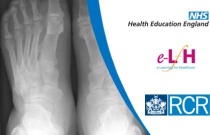Understanding the Marburg Virus
Dr. Faith Isabel Ndoya
Marburg virus is a virus of Filoviridae family of viruses. According to the World Health Organization (WHO), Marburg virus disease case fatality rate rate is around 50%. This webinar aims at deepening understanding of this disease including its virology and epidemiology.
WEBINAR pre and post eXAM
Mr WCEA Administrator
ourse Description* Please add a course description with a minimum of 20 characters
Exploring Undiagnosed NVAF and Its Comorbidities
Mr WCEA Administrator
Please add a course description with a minimum of 20 characters.
Substance Abuse and illicit trafficking
Dr. Susan Kinyeki
By the end of this course, you will have learnt about: 1. Corruption and substance abuse 2. An analysis of peer education in Kenya 3. Primary Healthcare as a driver of UHC
Behavioral Interventions: Impact on Cardiovascular Risk Factors
Valerie Hoover
0.75 Hours
This course provides essential insights into the link between mental health and cardiovascular risk, helping you recognize and address mental health issues in cardiac patients. Learn evidence-based strategies for screening, referral, and improving outcomes through effective behavioral interventions. Enhance your clinical practic....
Lp(a): Closer to Home Than You Think
Kathy Byrne, and Lisa Maher
0.25 Hours
Kathy Byrne, MSN, CRNP, CCRN.,and Lisa Maher, DNP, ARNP, FNP - BC, FPCNA, describe the most common genetic dyslipidemia -- elevated lipoprotein (a), or Lp(a). The discussion includes testing for Lp (a) -- especially cascade screening for family members, and others who may be at risk. Resources for patients and HCPs are also part....
Choosing the Right Pacing Device: Heart Failure Interventions
Paul Bibby
0.75 Hours
At the end of the course, you will be able to review available cardiac pacing devices available to treat heart failure, examine pacing modes and mechanism of action, and discuss screening and assessment to select device and mode of therapy in the heart failure patient.
Managing Hypertension: The Silent Killer
Maria Bonanni, MSN, CNRP
1.25 Hours
Enhance your ability to manage hypertension with a comprehensive review of its types, causes, and cutting-edge treatment options. By mastering both traditional and novel approaches, you’ll be equipped to better serve patients and reduce the risks of this widespread and often undiagnosed condition.
Understanding Family Planning Options
Miss Tapokera Mkandawire
Family planning services are an essential component of health system. There are various methods used for family planning. This lecture will discuss different family planning options which are available and favorable in specific settings.
Empowering Nurses: Strong Mind, Strong System
Dr. Jameela Alhosani, Ms. Naglaa Samy, Ms. Sondos Jarrad, Dr. Gameela Alhosani, and
This dynamic webinar series is designed to support, inspire, and equip nurses across the UAE with the tools to lead, thrive, and uphold the highest standards of care. Each session focuses on a critical aspect of nursing practice, from leadership and ethics to mental health and recognition.
Clearer, Stronger, Smarter: Transforming How We Present and Communicate in Health Professions Education
Lawrence Sherman
How can we become more effective presenters and communicators ? Being knowledgeable isn't enough—it's how we communicate that creates impact. This highly interactive webinar is designed to equip healthcare professionals and educators with actionable tools to elevate their presentation and communication skills, both in person....
Swollen Toe
Nyree Griffin and Jeremiah Healy
This session illustrates cardinal features of seronegative arthritides affecting the toes and discusses how to differentiate this from other causes of swollen toe. The session will start with a series of questions to test your prior knowledge.











